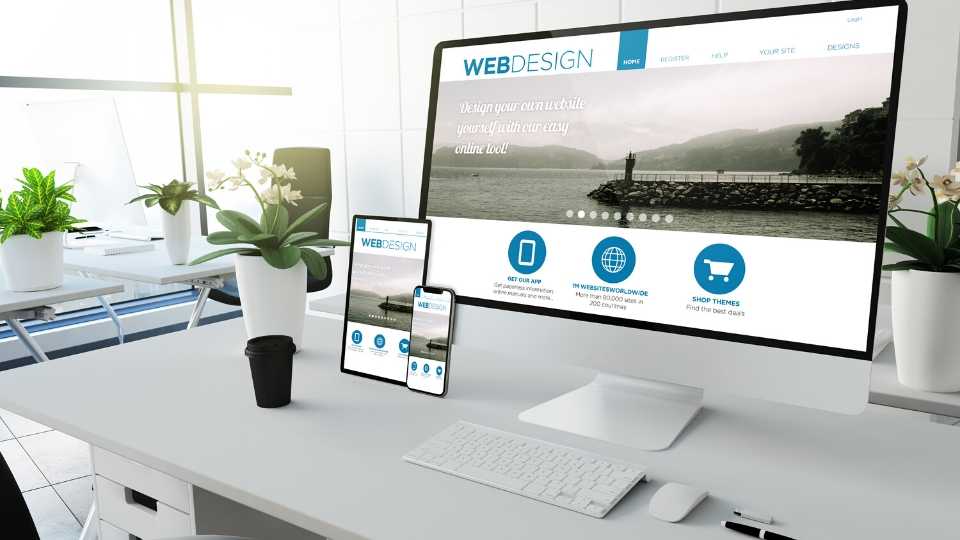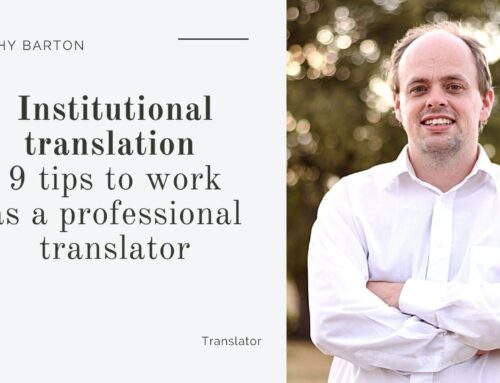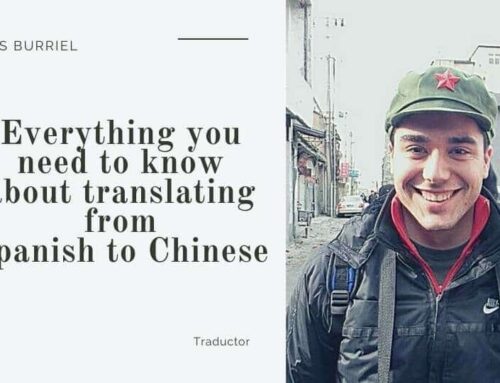Have you noticed? Most websites translate their original versions into other languages. They do this because companies want to reach a wider market. As well as that, translating their websites can give their brand credibility and improve their reputation.
So, why is this process considered a hassle? Sometimes, with the aim of saving a little bit of money or resources, companies do not hire a professional website translator and they end up making mistakes that compromise their own brand. Vocabulary is extensive and interpretations are infinite, which is why businesses should take extra care, especially when their reputation is at stake.
That being said, it is true that when someone embarks on this adventure of building a multilingual page, many questions arise. Will you really reach more people? How much money should you invest? What languages would interest my audience most? Or, how is this going to affect the reputation of the brand? These are just some of those questions. In today’s article, we answer the 5 most common questions that arise when making the decision to translate a website to multiple languages. Don’t miss out!
1. Which language do I translate to first?
This is very important. From our perspective, we believe that if the native language is not the same as that of Shakespeare, then it would be best to translate the website to English and Spanish first. English is the quintessential universal language. In fact, it has become the second language for most of the world’s population. In addition, according to Infobae, it is the most used on the internet. And what about Spanish? There are more than 500 million potential Spanish-speaking consumers waiting for your product or service. Even so, translating a website to French, Portuguese, Chinese, or another language will also help to cross borders and reach more people.
Today it is important to make yourself known by using all of the tools available. For this reason, it is advisable to not only translate your website, but your social media networks as well. These platforms will help you attract more traffic to your website organically and improve your brand’s corporate image. It is important to be consistent when it comes to the message transmitted through a company’s home page and through other methods (email marketing, social networks, blog, advertising campaigns, etc.).
To do this, you should also define the target audience and take note of what language they speak. This is necessary for adapting the descriptions of products and web copy to users that decide to visit your page and are potential customers. Not only should you focus on the languages most widely spoken, but also where your buyer persona is, who they are, what they do, and how they will find you.
If you have more questions about which language to translate your content to first, check out this brief article of ours where you will find 3 tips for choosing the language that you can apply today.
2. What are the advantages of translating to multiple languages?
There is no doubt that translating your company’s website brings with it certain benefits and advantages that it would be a shame to miss. In fact, big companies like Samsung, Apple, or Amazon, among others, have a wide range of languages available on their websites. This helps them to become more easily known in other markets and expand their business.
In addition, by allowing more people to access the website, they are more likely to make a sale. We cannot deny that knowing and understanding perfectly what is being offered to us makes us, as customers, more likely to go to the page that asks for our bank details and make a payment. This is what is known in sales as a higher conversion rate.
A fairly common mistake that businesses make when starting to sell in other countries is that they simply limit themselves to translating the text, without adapting it to the local cultural context. Because of this, strategies lose coherence and do not have the same impact on one culture as they do on another. This is why it’s advisable to localise a website, not just translate it.

3. How does translation affect SEO?
Search engine optimisation, better known as SEO, has become a key point to consider within a marketing strategy. The truth is that everyone wants to improve their positioning in search results, but it is not easy at all.
For this reason, a website translation business that knows how to take care of SEO keywords can be very useful. An automatic translator will not prioritise the keywords you want to emphasise, nor will it have the experience necessary to achieve optimal results. A professional website translator will be the best option if SEO is one of your objectives.
To perform SEO on a multilingual website, it is important to consider what keywords could improve positioning in each language. Once this is done, you can start to translate the website, always keeping the requirements of the search engines in mind.
However, if you are interested in improving your website’s SEO, having a well-written blog optimised with keywords, and translating it to other languages can do wonders when it comes to positioning some of your pages in search engines. If you want to learn more, here is a very interesting article about the advantages of writing blogs and SEO.

4. What is the best way to translate a website?
Having a far reach is not easy, but this is why translating a website is important. So that your brand has a greater impact in other countries, the most important thing is to connect with the audience. And, to do this, it is essential to know the culture and the language in its native form. Our recommendation is to always hire a professional website translator. Having an expert that translates the intention behind every sentence accurately is crucial to achieving the desired result.
It is true that every day there are more and more options in the market for translating websites, but not all achieve the expected results. In fact, we do not advise using automatic online translators. It will not only impede your connection with potential customers but it can also compromise your brand and damage your image and reputation.
5. Is it worth investing money in this type of translation?
Yes, definitely. In fact, a website translation business is of great help for attracting more customers through different languages. Not having the right help can cause your business to lose credibility and damage your reputation. In fact, this has happened to some renowned businesses.
It was around the 90s when a Pepsi ad campaign wanted to use the slogan “Come Alive with Pepsi”. The problem arose when they decided to translate the text to Mandarin, but without adapting it. Therefore, the message that a large part of China received was “Pepsi brings your ancestors from the grave”. To make it worse, the Chinese culture is known for having great respect for their roots and ancestors. The mistake compromised Pepsi’s reputation.
Ford also suffered similar misfortune. The business wanted to promote their high-end cars in Belgium. To do this, they decided to use the slogan “every car has high-quality bodywork”. The organisation wanted to highlight this part of their vehicles. It became a problem when the translation to French conveyed that “every car has a high-quality corpse”. The Belgians did not let this go and for Ford, it was one of the most serious translation errors.
So, is it worth investing money in the translation of a website? We assure you that it is. In fact, as is apparent from the examples above, by “saving money” on these types of services, you can end up giving the wrong impression and losing much more money.

The data speaks for itself: translating your website helps you connect
Puromarketing argues that “80% of users lose confidence in businesses with language adaptation errors” and that “3 out of 4 Spanish e-commerce companies lose money due to translation errors on their website”.
Content marketing should be a part of any company’s communication strategy. With this, businesses can attract new customers and improve the loyalty of the old ones. To achieve this, it is important to convey useful and quality content in an attractive way.
When translating such content, the essence and purpose for which it has been designed should not be lost. In addition, when we talk about multilingual marketing, we are talking about adapting these texts to each country, while remaining consistent with the vision, values and tone of the brand.
It is clear that a professional translation can save you from many headaches. As well as that, it will help you achieve greater credibility and an improved reputation. That being said, you must also know the target audience at which your efforts are directed. This will help you determine which languages are best to translate to first and how to adapt your business’ text to the cultural context of the target audience.
Translate a website from English to Spanish
At Núria Masdeu Translations, we have a team of experts in web design and English to Spanish translation. Don’t give it another thought, and let technical and linguistic experts help you with this topic. Contact a professional website translator and start crossing borders.
[maxbutton id=”14″ ]





Leave A Comment